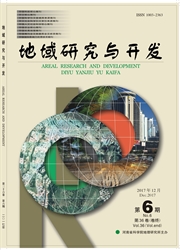

 中文摘要:
中文摘要:
随着发展观的演进,区域发展范式也在不断转向,出现了可持续发展范式、伦理公平发展范式和民生福祉发展范式3种区域发展主流范式。主体功能区理论的提出及在国家级省级层面的实施便是当今中国区域发展在此趋势下的理论创新和重要实践。研究认为,区域发展范式转向对我国主体功能区规划有3个方面的启示:(1)主体功能区在理论上虽以可持续发展理论为基础,却对人的发展和民生福祉、社会保障等关注程度不够;(2)主体功能区规划在方法论上以空间规划为主,但在规划编制与实施过程中未能充分融入民意、赋权于民;(3)主体功能区规划在目标取向上重视国土空间开发秩序,但在规划编制及实践中对影响空间秩序的社会空间结构的考虑和研究不足。
 英文摘要:
英文摘要:
Along with the opinions of development continuing evolution, research paradigms of regional devel- opment also happens turning. There are three kinds of regional development research paradigms, they are regional sustainable development paradigms, regional ethical and fair development paradigms and Humanistic development well-being or quality of life paradigms. Nowadays, the putting forward of major function oriented zoning theory and its implementations on national level and provincial level is an important innovation and practice of China' s regional development theory. In terms of the turns of China' s regional development research paradigms, major function ori- ented zoning in China can be explored as follows: First, although major function oriented zoning theory is based on the theory of sustainable development, but it can not give enough emphasis on the human development, livelihood and well-being issues; Second, the methodology of major function oriented zoning in China is mainly to spatial planning, but failed to empower the people in the planning process; Third, guideline for optimizing the spatial order of regional development in China was emphasized by major function oriented zoning in China, but during planning and practicing, often lacking of some considerations and research about social space structure.
 同期刊论文项目
同期刊论文项目
 同项目期刊论文
同项目期刊论文
 期刊信息
期刊信息
